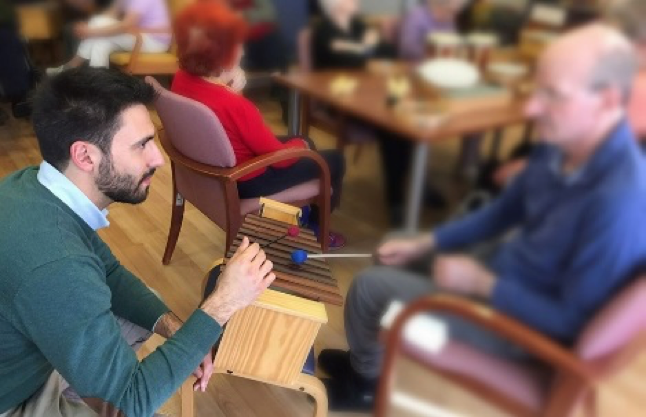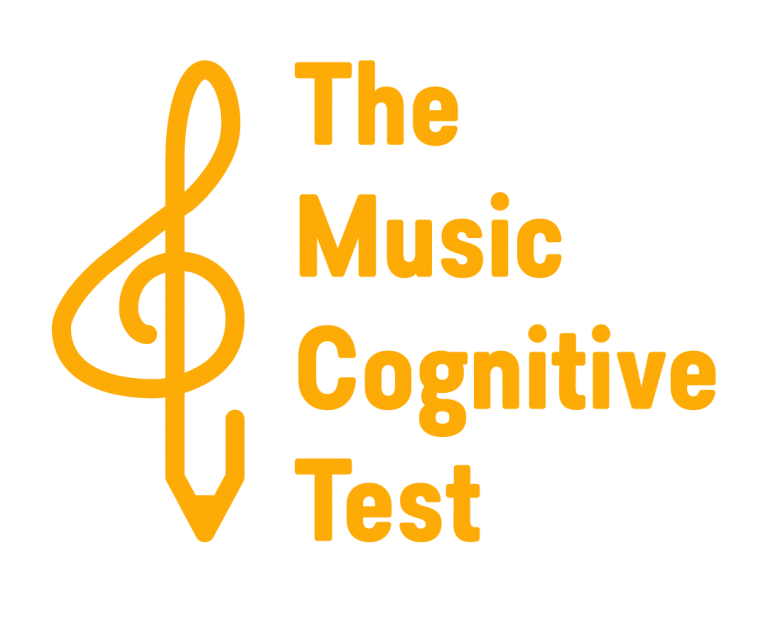
About MCT
MCT (Music Cognitive Test) is a brief music-based quantitative assessment of cognitive functions, validated in both Italian and British populations. MCT strongly and positively correlates with well-known tests (e.g., MMSE, MoCA) and was designed to enable music therapists and clinicians to independently screen their clients’ general cognitive abilities and monitor the effectiveness of their music-based activities.
What does the MCT assess?
MCT provides a prompt and comprehensive assessment of all general cognitive functions that are known, from the scientific literature, to be recruited during music-related activities.
– Space-time and name orientation,
– Praxis and visual-perceptual reasoning,
– Attention and inhibitory processes,
– Visual research and naming abilities,
– Verbal comprehension and planning skills,
– Verbal fluency,
– Sound localization,
– Rhythmic and melodic recognition,
– Short-term and long-term musical memory.


MCT validation has been published in the Psychology of Music Journal (2022). Original article can be found at:
https://doi.org/10.1177/03057356221100851
The test was initially validated with 335 participants (aged 18-100y.o.) presenting a range of cognitive levels, from healthy cognition to severe impairment. In the large-scale cross-national validation, 65% of participants were aged 60+, 80% of whom lived in care homes. Furthermore, MCT was found to reliably discriminate 60+ years old individuals with established neurocognitive decline (e.g., Alzheimer’s, Parkinson’s, MCI). Thus, making the MCT an accurate screening tool for the assessment of the older adult population, and even suitable to be used in care home settings.
MCT authors
MCT has been developed by:
– Dr Anthony M. A. Mangiacotti, PhD, Middlesex University (London, UK) & Padua University (Padua, Italy)
– Dr Giovanna Cipriani, PSY, Centro Anziani D. Sartor (Castelfranco V., Italy)
– Dr Emma Ward, PhD, Middlesex University (London, UK)
– Dr Fabia Franco, PhD, MCCLab, Middlesex University (London, UK)
– Dr Michele Biasutti, PhD, University of Padua (Padua, Italy)